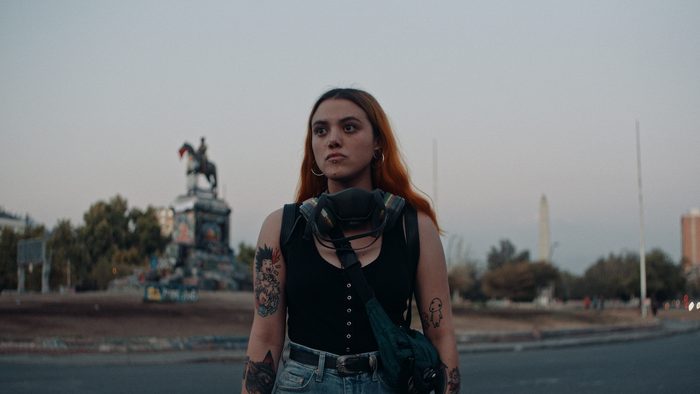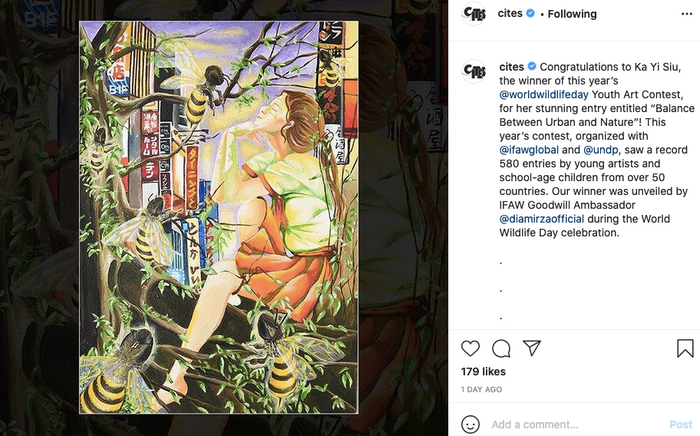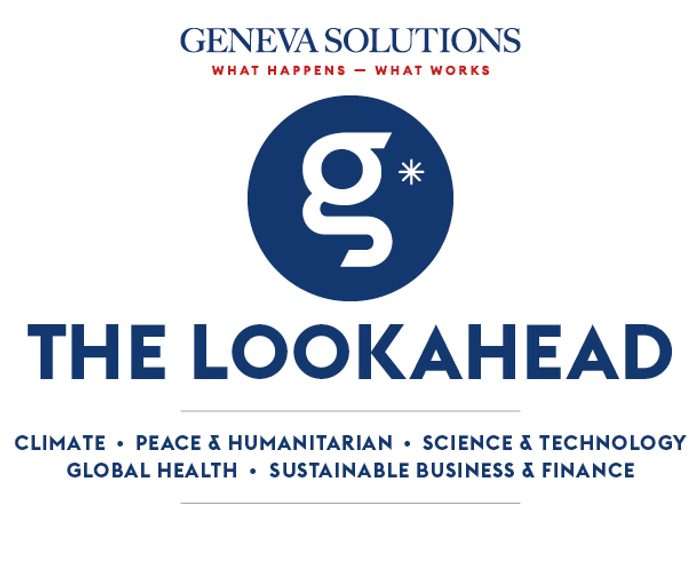Good morning, Michelle here, and as the International Film Festival and Forum of Human Rights kicks off today, one of the filmmakers tells us about his portrayal of a young generation of activists who will risk their lives to fight for a better future.
In other climate news, we learnt that nearly a fifth of food sold to consumers goes to waste, making up a large part of greenhouse gas emissions. Plus, we take a virtual dive into the ocean to find out how human activity is interfering with marine life. |

|

Film still of Rayen, one of the protagonists of Dear Future Children.
|
|
🎬 ✊🏾 Fighting for a better future.
Director Franz Böhm travelled to Uganda, Chile and Hong Kong to follow three young activists in their battles for the environment, against inequality and for democracy. Dear Future Children, he tells us, is about a generation that wants a seat at the table.
Geneva Solutions (EN)
|
|
🗑️ 🍎 The food we throw away.
The UN estimates that 17 per cent of all food available to consumers ended up in the waste bin of households, retailers and other food services in 2019. That’s enough to fill 23 million fully-loaded 40-tonne trucks.
Geneva Solutions (EN)
|
|
🐳 🚢 Under the sea.
The ocean is home to a wide variety of ecosystems that are under threat by human activity. This interactive piece explores its different habitats from the surface to the deepest zone and offers some solutions to prevent further damage.
The Guardian (EN)
|
|
Here's what else is happening
|

Screenshot from Instagram (@cites)
|
|
‘Balance between Urban and Nature’.
Eighteen-year-old Ka Yi Siu from Hong Kong has won this year’s World Wildlife Day International Youth Art Contest. The young artist’s bright and colorful piece was selected among some 600 entries from 50 different countries. The contest, organised by IFAW, CITES and UNDP, aimed to highlight this year the important role of forest ecosystems.
CITES (EN)
|
|
|
🎧 How light is affecting Arctic species.
With the far North warming up two to three times faster than the rest of the world, its sea ice is melting quickly. This means more light can reach the depths of the Arctic sea. Two scientists studying how climate change is affecting the region’s species are taking a look at the impact of increased light.
The Conversation (EN)
|
|
|
GS news is a new media project covering the world of international cooperation and development. Don’t hesitate to forward our newsletter!
Have a good day!
|

|
|
Avenue du Bouchet 2
1209 Genève
Suisse
|
|
|
|









